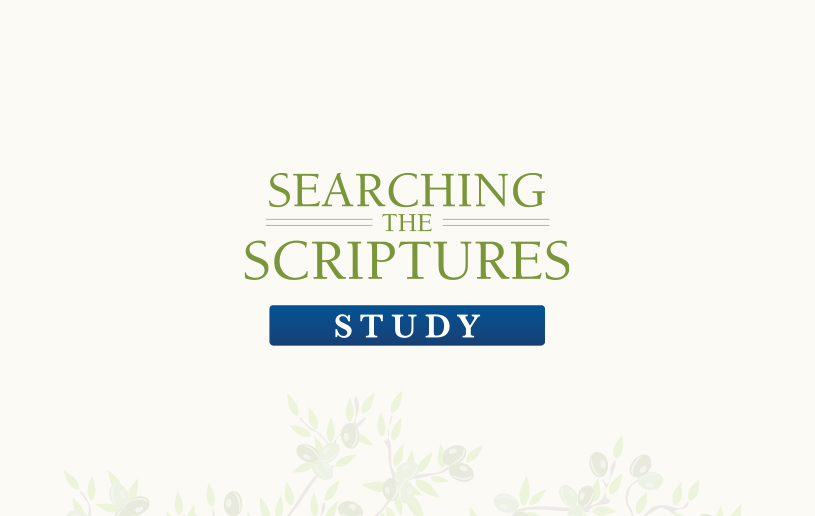
The following mini-study is presented to familiarize you with Pastor Chuck’s method of Bible study and provide an opportunity to study the passage yourself.
“The goal of confrontation is not simply to reprove, it’s to restore. It’s not simply to point out what’s wrong, it’s to bring the person to repentance.” —Pastor Charles R. Swindoll
When a great leader commits a great sin, he or she can usually pull the wool over the public’s eyes and keep it secret. Those closest to that leader, however, aren’t so easily fooled.
David was hardly free. The memory of his sin hounded his conscience day and night. Despite his agony, David hardened his heart and did not admit his sin, until finally the courageous prophet Nathan knocked on David’s door with a message from God as an act of fearless confrontation.
Prepare Your Heart
Scripture encourages us to “come boldly to the throne of our gracious God. There we will...find grace to help us when we need it most” (Hebrews 4:16). Express to God your desire for grace as you turn to His Word.
Turn to the Scriptures
Our key passage for this study is 2 Samuel 12:1–14.
When Nathan came to David, about a year had passed since the adulterous affair. David was miserable. “My sin is ever before me,” David later lamented (Psalm 51:3 NASB1995) and pleaded with God, “Oh, give me back my joy again” (51:8).
God gave David plenty of time to repent on his own. Month after month, the Lord waited for sin’s wretchedness to sufficiently soften David’s guilty heart. At just the right time (which may seem like a long time to us), the Lord stepped in. “Then the LORD sent Nathan to David” (2 Samuel 12:1, emphasis added).
Observation: Nathan’s Moment of Truth
Observation is an important first step in Searching the Scriptures as we let the words and images of the passage soak into our minds. Read slowly and thoughtfully.
Nathan’s Disarming Story—2 Samuel 12:1–6
Read Nathan’s opening story in 2 Samuel 12:1–4, noting the sympathy he creates for the poor man and antipathy for the rich man. What was Nathan’s purpose for first telling a story that David could relate to?
According to 12:5–6, how did David respond?
How do you think David’s past played into his outrage (1 Samuel 16:6–12; 17:28)?
Nathan’s Direct Rebuke—2 Samuel 12:7–12
David’s pity for the poor man and anger at evil opened David’s heart just enough for Nathan to land his rebuke.
According to 2 Samuel 12:7–10, how did Nathan turn the tables on David?
According to 2 Samuel 12:11–12, how did the consequences match David’s crimes?
David’s Repentance and Restoration—2 Samuel 12:13–14
Instead of rationalizing, David simply told the truth: “I have sinned against the LORD” (2 Samuel 12:13).
In 2 Samuel 12:13-14, how did the Lord show grace to David, despite the severity of the consequences?
Interpretation: Principles for Effective Confrontation
God didn’t send Nathan to confront David until a year after David’s behaviour toward Bathsheba and Uriah. What does the Lord’s delay teach about His character and response to sinful people?
What does an emotional word picture or story accomplish in confronting a resistant person?
After telling the story, Nathan focused on the facts of David’s sin. What principle does Nathan’s facts- based confrontation exemplify?
Nathan didn’t approach David with a vindictive or superior attitude. What principle does Nathan’s attitude convey about the proper tone for effective confrontation?
Correlation: Confrontation Methods in the New Testament
According to Ephesians 4:14–15, what do we keep in balance as we select our words and display our attitude?
What did Paul teach in Galatians 6:1–3 regarding our reasons, goals, and attitudes toward confrontation? What warning did Paul give?
Application: Lessons about Confrontation and Confession
Through Nathan’s confrontation, David’s broken relationship with God was mended. Later, forgiven David declared in relief, “Yes, what joy for those whose record the LORD has cleared of guilt, whose lives are lived in complete honesty!” (Psalm 32:2)
If the red light on the moral dashboard of your conscience is flashing your guilt, don’t wait to confess your sin like David did. Openly admit the truth. Be sincere in your desire to break from the sin and display a broken and humble spirit.
Has the Spirit been revealing a sin to your conscience? If so, use David’s own words in a prayer to the Lord: “wash me clean,” “purify me” (Psalm 51:2), “create in me a clean heart” (51:10), and “forgive me” (51:14).
On the other hand, you might feel the Lord sending you to be like a Nathan to confront a David. If so, what principles for effective confrontation from Nathan’s example can you follow?
What are the facts that you might want to point out, rather than getting sidetracked into conjecture and hearsay?
Confrontations are never easy. We always run the risk of straining a relationship but the risk is worth the reward when the person is restored.
A Final Prayer
Father, when I must confront someone, please send me. I don’t want to go on my own or in my own strength. I need Your words, Your wisdom, and Your love for fearless and effective confrontation. You long to restore Your sinning child, and I join You in that purpose. In Jesus’ name, amen.
Go to insightforliving.ca/confrontation to download the full-length Searching the Scripture Study and listen to Pastor Chuck’s message.

